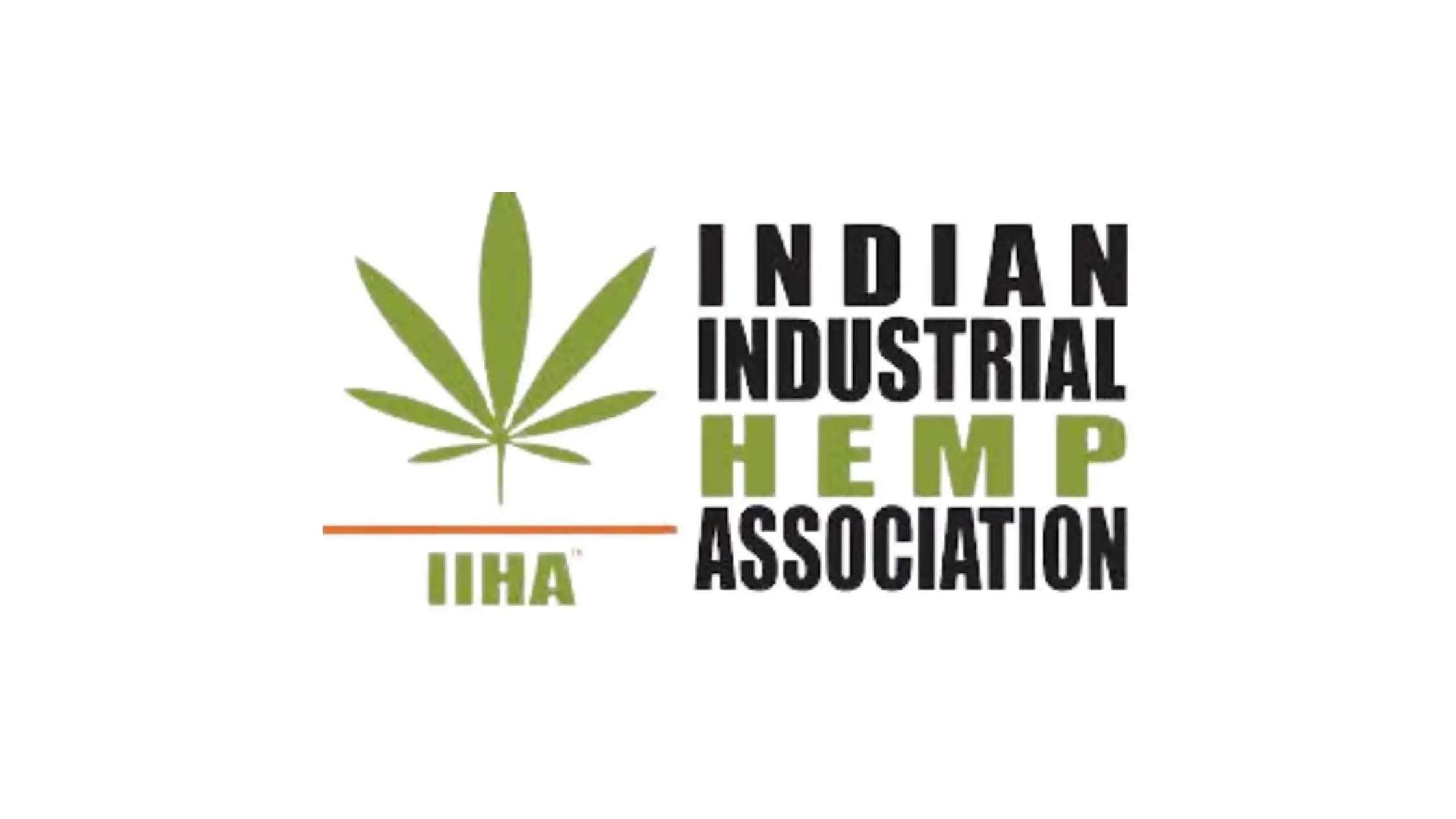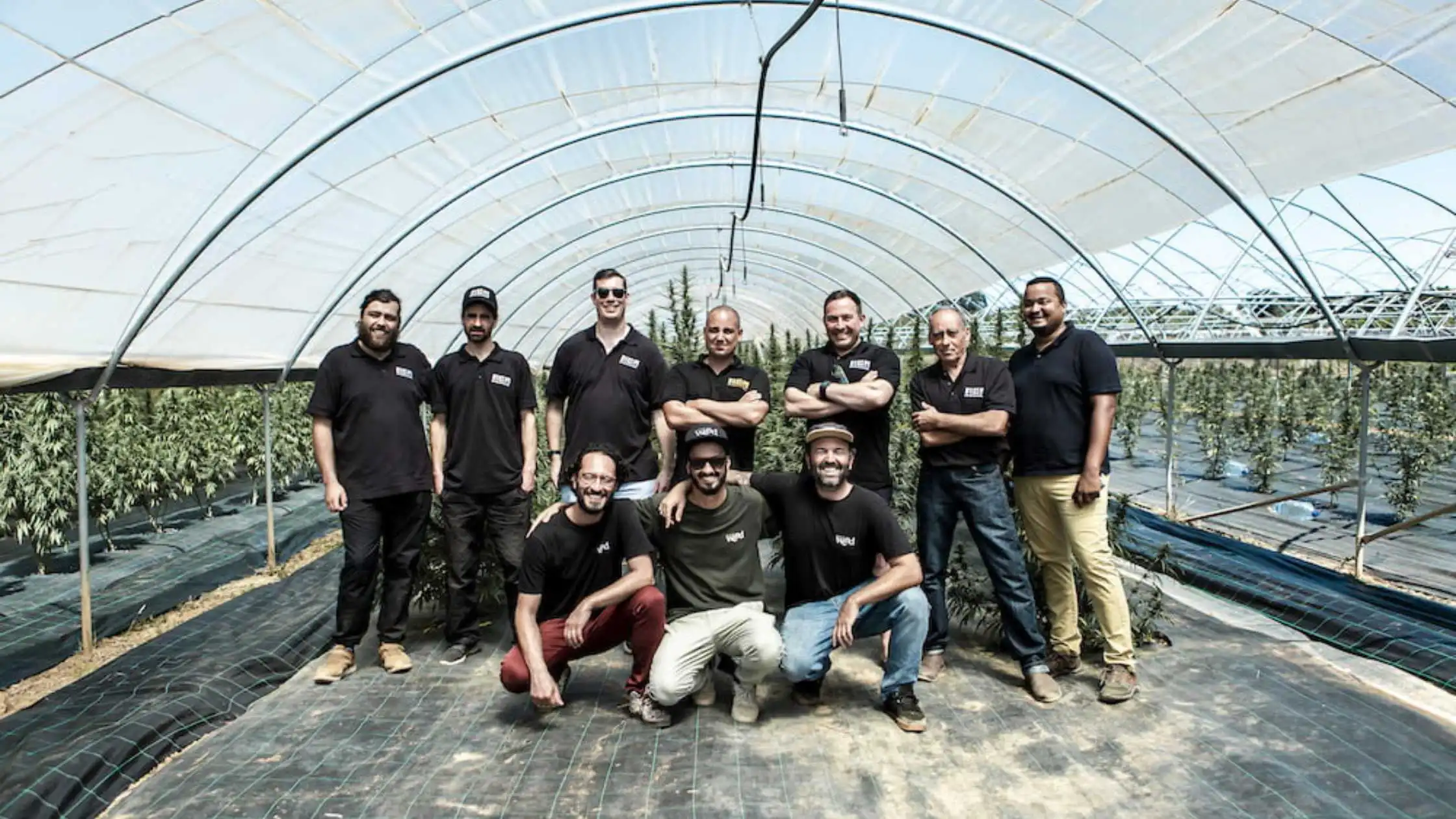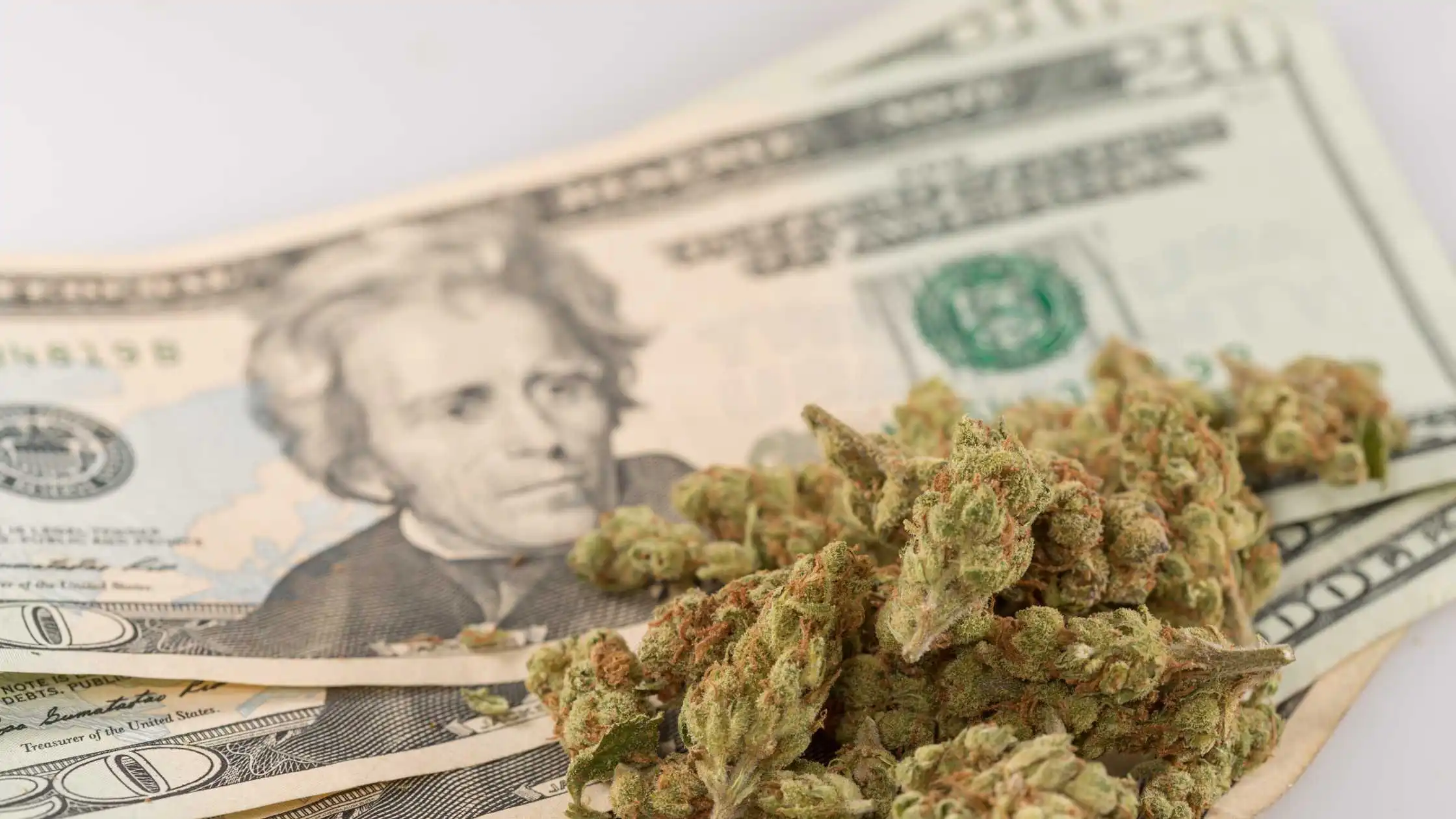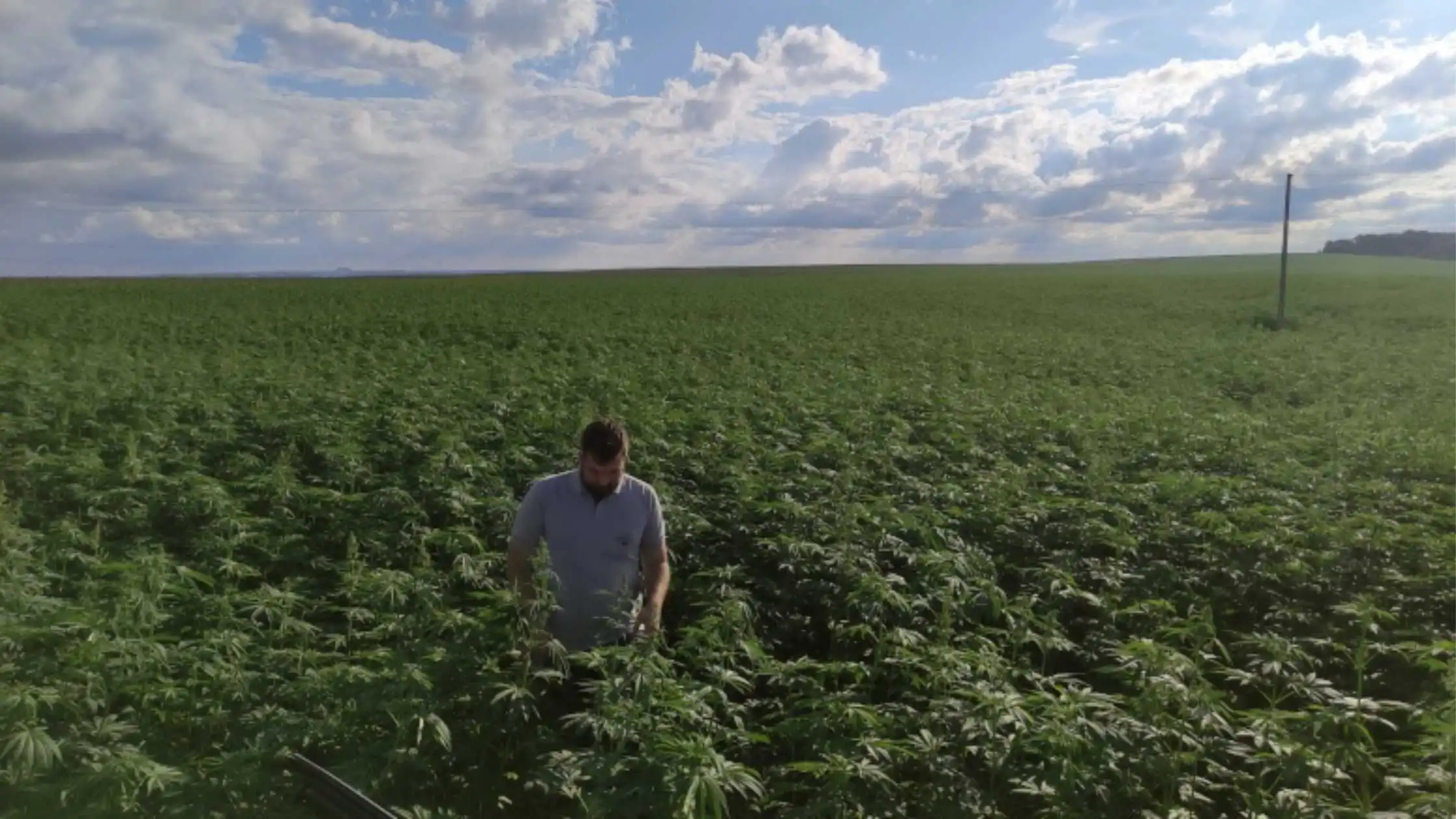Hemp Association
Earlier this year, Uttarakhand became the first state to allow the commercial cultivation of hemp, a variety of non-narcotic cannabis that is used in industries such as textiles, eco-construction materials, biofuels, health, and nutrition.
Though countries like Germany and China have been quick to capitalize on the legal cannabis industry, India has been slow to warm up to its benefits.
But everything’s not gone up in smoke. Many small businesses and startups have entered the industrial hemp industry as first movers. Bombay Hemp Company also raised $1 million this year from Ratan Tata and others.
However, getting a license from the Uttarakhand government to allow hemp cultivation was a victory for the Indian Industrial Hemp Association (IIHA). This non-proforganizationion promotes the industrial application of hemp.
Though the Indian government had formulated a policy way back in 1985 allowing the cultivation of non-narcotic cannabis along with opium, there were no proper rules laid down for hemp cultivation, its procurement, and its use.
Know More About Hemp Startups in India
Rohit Sharma, who founded IIHA and has been working in this field for the past seven years, told SMBStory that it concerned him that India was failing to tap into the $1 trillion industrial hemp industry. “We released that the authorities had no idea how to implement the 1985 policy,” he added.
His work focuses on market analysis, ecological evaluation, and the political and economic framework for industrial hemp-based processes and applications. Sharma is the founder and president of IIHA and Hemp Pharma Pvt Ltd and a partner and member of the European Industrial Hemp Association (EIHA), an ad hoc advisory group for Industrial Hemp Europe.
The Gurgaon-based IIHA (which also has an office in Dehradun) is represented by its members in India who work with the hemp plant and its many products. Rohit says, “IIHA connects the dots and fills in the jigsaw puzzle pieces for our members. We have partnered with the European Hemp Association, Canadian Hemp Trade Alliance, World Hemp Congress, Slovenia, and Hemp Industries Association.”
Here are excerpts from an email interview with Sharma, in which he discusses the challenges and potential of the industrial hemp industry.
SMBStory: Why was there a need to establish this association, and how did you come about to do it?
Rohit Sharma: In 2012, when we started to work with the hemp crop, no technical body or entity monitored it. The struggle was confirmed as the very word hemp was connoted with marijuana.
The provisions in the Narcotic Drugs and Psychotropic Substances (NDPS) Act of 1985, allowing the commercial use of industrial hemp, took a lot of work to explain, especially to government bodies. The understanding of industrial hemp needs to be improved. A trillion-dollar cash crop remained untapped in its homeland.
According to the NDPS Act, trade and consumption of cannabis cannabis resin (charas) and the bud (ganja), which have a higher amount of THC (narcotics content), is considered illegal.
IIHA felt the impetus for this budding industry, and it took it upon itself to bring industrial hemp to centerstage and smooth out uneven creases. Putting forth a team of distinguished individuals from research and development and legal advisory and then further creating a network with international associations, IIHA is strongly focused on creating the groundwork with technical data for the hemp industry.
As a result, new entrants and members of IIHA feel at ease due to a strong technical background. On average, IIHA today receives more than 20-30 daily queries from all across India about farming, fibre, pulp, medicine, food, etc.
Hemp cultivation in Uttarakhand
SMBStory: Why hemp? RS: Hemp is a good substitute for cotton. It can be clubbed with other natural fibres like silk to produce textiles. The plant can also be used to manufacture paper products and fibreglass, and research has shown industrial hemp can be an alternative source of biofuel.
Moreover, the plant can be harvested in three months and requires very little water, which is why states like Uttarakhand, where water is scarce and conventional crops are difficult to grow, are ideal for cultivating it.
SMBS: What challenges do businesses face in the plantation, processing, and marketing of hemp?
RS: The first pilot project of IIHA with the Uttrakhand government started in July this year. It has been a training ground for us. Though one of the best attributes of the hemp crop is that it is robust and hardy compared to cotton and others, it needs minimal resources to grow. As a first-hand experiment, barren lands in hilly areas of Uttrakhand are being used for crop cultivation. At the inception stage, we had to clear the land of stones and rocks, a lengthy but fruitful process.
Considering IIHA is conducting the first lelegalizedemp cultivation in the country with the support of the Uttrakhand government, this pilot project will produce precise, streamlined data that will benefit future entities by tracking all the blind spots.
The industry’s concerns arise from making multiple government departments understand the worth of the cash crop. The industry is clearly showing signs of movement from the nascent stage, yet stigmas and a lack of understanding are holding it back.
For example, for food processing, in October last year, the Food Safety and Standard Authority of India (FFSAI) sent a notice to Indian states that there aren’t clear food safety standards. Henceforth, state licenses to sell hemp food products are at a standstill. In the last year, the industry has brought forth data to FSSAI to set clear standards and get the show on the road. There is a vast hemp food market waiting for imports and exports alike.
The perception of hemp being only a narcotic product is slowly changing among the youth and critics of hemp. At IIHA, we get a lot of requests from Indian millennials wanting to work in the hemp industry. Marketing is essentially not a challenging situation for a multi-benefit crop like hemp.
SMBS: How are you deploying digital technology?
RS: Many hemp fibre products are readily available on digital platforms. From IIHA’s standpoint, we have an active social media presence where we update posts about our cultivation process and body of work. We are working on digital projects that will see the light of the day by next quarter.
SMBS: What were the key milestones in your journey?
RS: First and foremost, the critical milestone was setting up IIHA as a technical solid body and giving authenticated data-backed answers to government bodies. SRS Institute’s tie-up with IIHA was the first cause created to study the hemp crop and conduct various tests. As an authenticated technical body representing the industry and backed by the SRS institute, IIHA has spearheaded the formulation of the industrial hemp licensing process in Uttrakhand.
At IIHA, we celebrated July 6, 2018, as Hemp Day. It was a day of reckoning, as after consistent efforts, IIHA procured the first license to cultivate industrial hemp in Uttrakhand.
SMBS: What is the market size of the sector?
RS: It’s an exhaustive list as industrial hemp is a multi-beneficial crop, and all the parts of the crop come with a utility. Around 30,000 products are currently being sold in the world market. Bioplastics, herbs from bioethanol, construction material, cosmetics, fibre, food, pharma, and pulp are a few sectors that will benefit from industrial hemp.
SMBS: What is your advice to people who want to set up their business in this sector?
RS: Hemp is a vast subject area. Every part of the plant has its set of benefits and usages. Anyone wanting to work with hemp needs to study and do considerable homework on niche products they intend to curate with hemp. The process of working with hemp doesn’t start and end with its cultivation. A business entrant needs to be clear and focused on the niche industry and then prepare a business plan around the targeted chosen industry.
SMBS: What are your prospects?
RS: There are a lot of corporates who want to enter the agriculture sector of hemp as well as its end products. If we take the example of olive oil, we see a lot of acceptability and openness in the food sector alone in India. New product entrants, especially from a health and lifestyle standpoint, are generating a lot of buzz.
SMBS: What is your opinion of the MSME market in India, and how can the MSMEs be empowered better?
RS: MSMEs will play a significant role in the hemp industry. MSMEs will be exposed to a vast export market as the hemp industry progresses. The MSME market is looking at new ventures, and startups can capitalize on hemp for their business models. MSMEs’ contribution will also lead to the strengthening of the hemp industry.
Disclaimer: This article is originally published on https://yourstory.com





